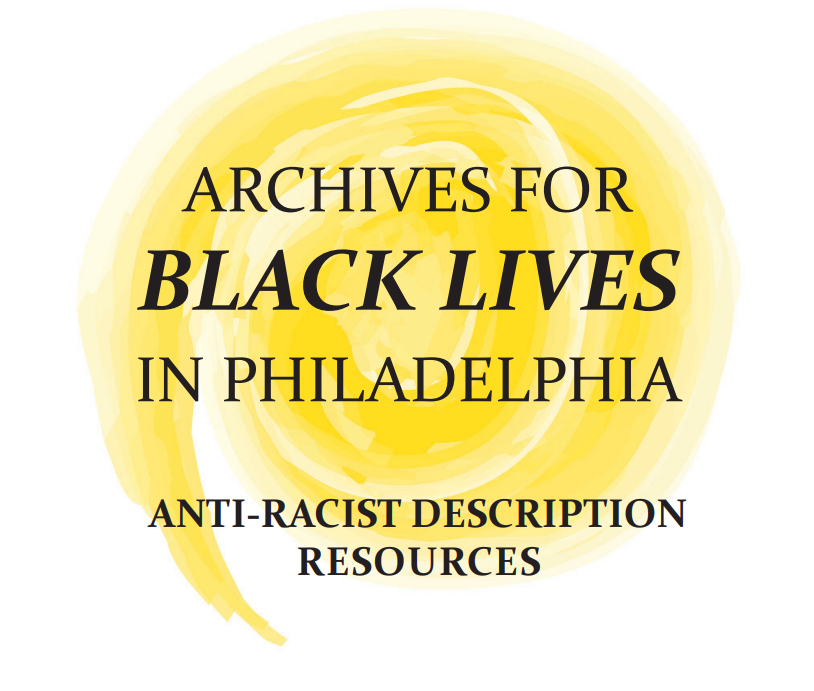How do you handle racist language in your archives? This is, unfortunately, a perennial issue. The Archives for Black Lives group in 2019 published Anti-Racist Description Resources. While you should read the whole thing (especially if you have materials pertaining to slavery), I wanted to pull out some practical bits to share with you:
Consider your audience and the potential for harm when making decisions about whether to preserve problematic creator-supplied language. In most cases, preserve but contextualize creator-sourced original description when racism is an important context for understanding records. If you choose to maintain some or all racist creator-based description, draw a distinction between the creator-supplied description and archivist-supplied description via quotation marks, processing information note, scope and content note, and/or another method. Other helpful actions may include:
- Utilizing a series-level note explaining that creator-based folder titles were or were not maintained, recognizing that some language is outdated/offensive, and explaining WHY you chose to maintain or not maintain those labels. Creating standardized institutional language that can be reused may be helpful.
- Recognizing that a processing note will not alone be sufficient to communicate to most users.
- For collections or discovery portals where users may be harmed by encountering offensive language, it may be appropriate to replace offensive language in primary user-facing description. For an example of this approach, refer to the language policy for the Find & Connect website on child welfare in Australia.
Recognize that racism in collection material folks are transcribing is actually a great learning opportunity, a hard one, but once you place things in context for your transcribers, it’s up to them to take what they take from it. Many volunteers may be encountering this material for the first time, as the histories they were taught may have omitted unpleasant parts of the past. They may prefer a version of history that doesn’t make their ancestors look like villains. I don’t think it’s your job to disabuse them of this directly, but to present the historical evidence and let them incorporate it into their understanding.
Practical suggestions:
Take a collection private to buy time to decide what to do.
If you’re running a transcription project that you don’t expect to have racist language, but a volunteer reports it, the first thing you could do is make the collection private. In FromThePage this takes less than a minute. This buys you breathing room; time to investigate the material, formulate a statement to include in the collection description and your footer, and hopefully reopen the project for transcribing.
Revise metadata using FromThePage
If you have a metadata revision project in mind, staff can work on that revision privately and collaboratively within FromThePage. Existing metadata can be imported into FromThePage via spreadsheet, ContentDM import, or any IIIF import. Then each item and its original metadata can be viewed while filling out the new metadata form. If they encounter something tricky, they can add comments and discuss it in our “Notes” section for each item, on the same page.
Want more? Here’s Ben’s 2020 post, How to Handle Racial or Ethnic Slurs & Offensive Language in the Sources We Transcribe and the full Anti-Racist Description Resources. We also have a video on revising metadata using FromThePage.

